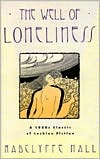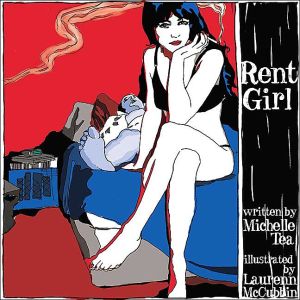Empathy
Provocative, observant, and daring, this 1992 novel by one of America’s preeminent lesbian writers and thinkers is being reissued for the Little Sister’s Classics series. Anna O. is a loner in New York, an office temp obsessed with a mysterious woman in white leather; Doc is a post-Freudian psychiatrist who hands out business cards to likely neurotics on street corners, and is himself looking for personal fulfillment. They befriend each other in the netherworld of the Lower East Side, two...
Search in google:
A Little Sister's Classic: Sarah Schulman's beautiful, subtly transgressive novel about identity, sexual politics, and self-esteem.Publishers WeeklyLesbian writer Schulman follows her well-received After Delores and People in Trouble with this insightful allegory, which explores the feminine and masculine qualities said to coexist within every personality. The novel is prefaced by a troubling quote from Freud, which alleges that lesbianism results from a woman's frustrated Elektra complex and desire to punish her father. This theory is challenged by protagonist Anna O (meant to suggest a famous Freud patient), a lesbian secure in her attraction to women yet struggling with male sexism, her family's homophobia and her feelings that she is unlovable. Anna consults ``street-corner psychiatrist'' Doc, who roams New York's Lower East Side and charges patients $10 an hour for his listening skills. Representing the female and male halves of a complete person, Anna and Doc discover that together they can confront conventional mores, their own guilt and a woman, symbolically clad in white leather, who broke their hearts. In a resolution that better serves the book's allegorical aims than its dramatic development, Anna and Doc are composites that masquerade as characters. In a plain-spoken, often funny narrative, Schulman makes provocative statements about gender roles, sexual orientation, AIDS, homelessness, drugs and the therapeutic value of an attentive ear. Author tour. (Dec.)
\ Publishers Weekly - Publisher's Weekly\ Lesbian writer Schulman follows her well-received After Delores and People in Trouble with this insightful allegory, which explores the feminine and masculine qualities said to coexist within every personality. The novel is prefaced by a troubling quote from Freud, which alleges that lesbianism results from a woman's frustrated Elektra complex and desire to punish her father. This theory is challenged by protagonist Anna O meant to suggest a famous Freud patient, a lesbian secure in her attraction to women yet struggling with male sexism, her family's homophobia and her feelings that she is unlovable. Anna consults ``street-corner psychiatrist'' Doc, who roams New York's Lower East Side and charges patients $10 an hour for his listening skills. Representing the female and male halves of a complete person, Anna and Doc discover that together they can confront conventional mores, their own guilt and a woman, symbolically clad in white leather, who broke their hearts. In a resolution that better serves the book's allegorical aims than its dramatic development, Anna and Doc are composites that masquerade as characters. In a plain-spoken, often funny narrative, Schulman makes provocative statements about gender roles, sexual orientation, AIDS, homelessness, drugs and the therapeutic value of an attentive ear. Author tour. Dec.\ \ \ \ \ Library JournalAnna, the main character in Schulman's People in Trouble , LJ 1/90 new novel, tries to make some sense of her crazy, mixed-up life with the help of Doc, her therapist and alter ego. She wants to resolve the anger and resentment she feels toward her intolerant family so that she can accept herself. This work might better have been called Guilt , since her characters more often act out of guilt and embarrassment than any other feeling. Anna feels guilt for not helping the poor and homeless and for not being normal or feminine enough. She tells Doc that the most important thing to remember about families of lesbians is that ``you just can't outwit them. . . . No matter how normal you try to be, you'll never be normal.'' The novel relies on characters who engage in dream sequences to make their points. Not very much plot action unfolds, but, while the dialog is at times offbeat and disjointed, it is always witty and irreverent. When the characters are unmasked at the end, readers will be surprised at the deftness with which this story is told.-- Lisa Nussbaum, formerly with Cambria Cty. P.L., Johnstown, Pa.\ \








